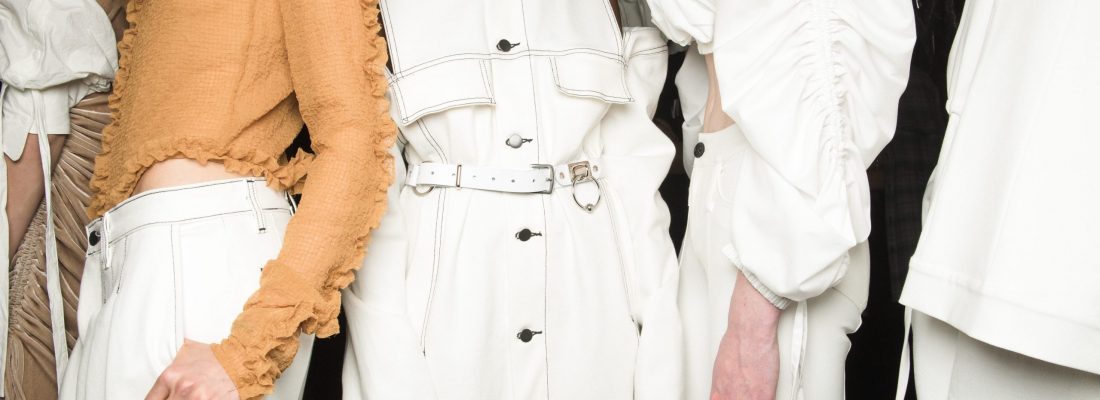The fashion industry has always been associated with notions of glamour, luxury, exclusivity, and even excess, especially more so in recent times. Such tantalising imagery is in large part due to the industry’s success in polishing its image, with the help of the global cultural cognoscenti flooding our social media, websites and even Spotify playlists with luxury brands, the latest drops and flashy symbols capturing the high life. However, the more discerning ones might recognise fashion beyond mere luxury brands. Some might recognise the industry as a purveyor of cultural arts and an ongoing socioeconomic commentary, with clothes being the most practical art form that directly influences our daily lives. Regardless of which camp you belong to, here are some ideas for you to enter this $2.4 trillion industry.
Read and Learn
“Who is your favourite brand?”
I have been asked this question so many times from fashion enthusiasts and fashion school lecturers alike. Chances are, you will also find yourself in this situation the moment somebody gets a whiff of your interest in fashion.
Interestingly, fashion school lecturers lament potential (and actual) students’ responses when they pose them this question. “I have students answering Chanel and Louis Vuitton, which are the most generic ones that everyone knows,” a lecturer from a local institution told me. But, he continues, when they are asked why these brands interest them, they cannot generate an adequate or insightful response. What he finds most intriguing (and disturbing) is how their knowledge of brands plateaus at this stage.
Perhaps the first issue anyone with an interest in fashion has to grapple with upon learning about the industry is just how much information there is about the entire industry. Fashion does not only entail luxury brands, designers and celebrities. In fact, it is a behemoth global cross-cultural machine that stretches from the poorest slums of Bangladesh to the best ateliers in Paris. The supply chain process alone involves a plethora of players from the farmers and producers, to the textile mills and refineries, together with distributors and wholesalers. All these people work in tandem to produce textiles, and we haven’t even mentioned the designers, buyers, marketers and models yet!
Fashion extends way beyond the glamour of runway shows, campaign events and luxury brands. Therefore, it is imperative for aspiring fashion entrants to immerse themselves in the variety of resources about fashion. Read everything you can about the industry, ranging from designers (star designers and independent ones), to industry publications such as WWD, Retail Dive and the Business of Fashion. Consumer publications are interesting to read for leisure and entertainment, such as Vogue, GQ and Elle. For Singaporean learners, don’t discount reading Singaporean publications too! Some of my favourite local publications are T: Singapore, Female Magazine and Esquire Singapore.
Network
You might have heard this adage “It’s not about what you know, but who you know.” No statement holds more truth and weight in this industry. As an aspiring fashion student or learner, it is helpful to connect with like-minded creatives and industry players to provide win-win value propositions for both parties. For instance, as a budding fashion photographer, it might be helpful to reach out to aspiring or even established models offering to conduct photoshoots with them to enhance their portfolio. Through the power of referrals and networking, you might enjoy more marketing via word-of-mouth than you would with an ordinary WordPress portfolio.
Networking events are not uncommon in Singapore, with some independent companies even offering fashion-centric events. Coworking space The Hive, for instance, hosts a biannual Runway: Catwalk and Market Bazaar event, which is a public fashion show that showcases emerging and established Singaporean labels, inviting attendees to personally connect with the designers and buy their clothes. If you are interested in startups, technology and fashion, The Bridge Fashion Incubator (TBFI) is a Textile and Fashion Federation (TAFF)-backed, 16-week incubator programme that assists startups in bringing their businesses to market and provides expertise from industry insiders in developing your brand and business models. Signing up for these free programmes and exposing yourself to others with similar interests will go a long way in helping you expand your network and knowledge base. Of course, the opportunity to meet industry insiders is not only limited to such specific fashion events. Other public events and trade shows such as Boutique Fairs Singapore also allows you to network and rub shoulders with local creatives, makers and industry players alike.
Make, Experiment and Find your Area of Interest
Having done the steps above, it might gradually dawn on you that fashion is a colossal industry that accommodates all personality types, from tech geeks to extroverted influencers and eccentric personalities.
It might therefore be helpful for you to ascertain early on what your specific areas of interest are within the industry. For instance, a wordsmith who loves books and texts may decide to hone her skills in fashion journalism, marketing or PR. An artist who loves the hands-on approach of touching textiles, working with paint or found materials may explore a career in fashion design or visual merchandising instead. Someone who loves numbers may explore career opportunities in fashion buying, merchandising or even customer data analytics. Perhaps an extrovert might wish to explore partnering with brands as ambassadors and social media personalities.
Naturally, some of us may not be able to pinpoint exactly where their interests or strengths lie from the outset. Therefore, I encourage you to experiment around and dabble in as many areas within the industry as you like until you find your calling. Having found your vocation, it will be extremely fulfilling to focus your effort on developing the skills, contacts and knowledge along your career.
Sign up for Short Courses
If you want to expedite your fashion learning journey without committing to a costly four year Bachelor’s degree, short courses are an excellent option that allows you to sample life in the industry. Video course providers such as Fashive are online learning providers with excellent introductory courses such as Basics of Garment Construction and Pattern Making, Fashion Design and Product Development and Apparel Production Drawing that help you get started in the industry. For Singaporeans, you may wish to check out the government-certified courses offered by Taf.tc, a training centre directly associated with the national fashion agency TAFF, which can be found here.
In conclusion, there are plenty of pathways an aspiring fashion student can take to enter the fashion industry. None of these pathways entail signing up for a Bachelor’s degree in a fashion school, yet they can provide an equivalent or even better entryway into the massive and opportunity-filled fashion industry.

About the Author
Thaddeus Asher Han
Fashion Commentator & Creator
Fashion Journalist at Fashive
https://medium.com/@thaddeusasherhan
